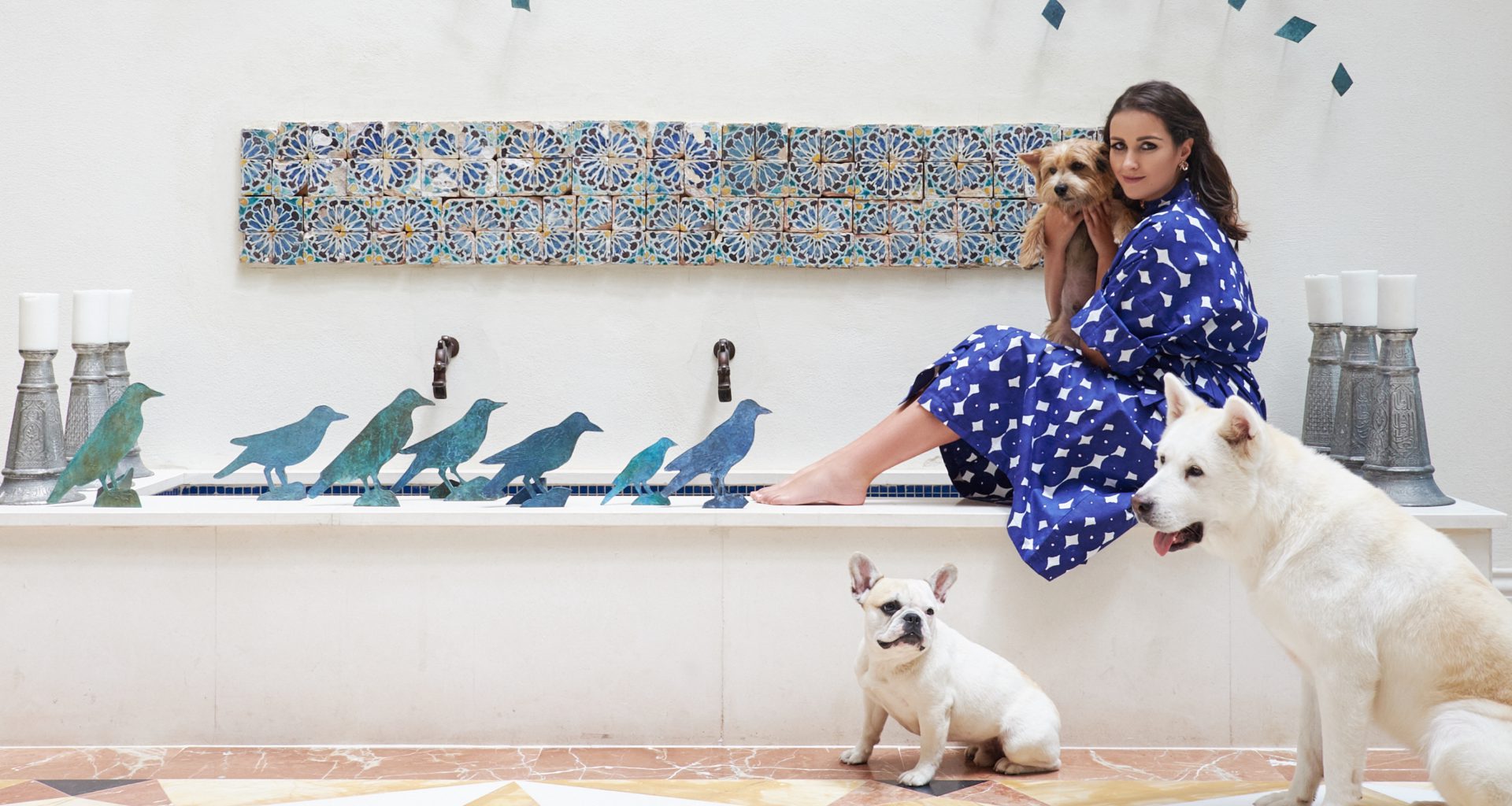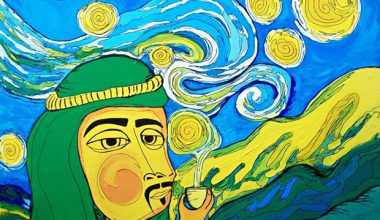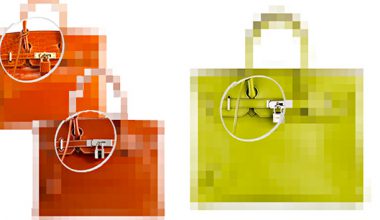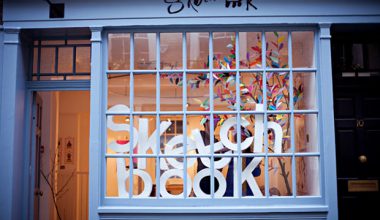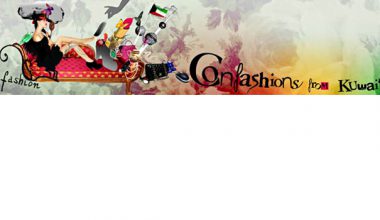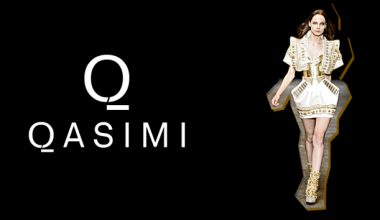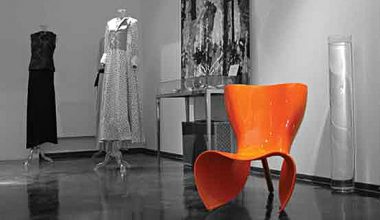Born to an American mother, world-renowned Art Collector Sheikha Paula Al-Sabah, and the youngest of six children, Noor Mubarak Al-Sabah was born into privilege. Yet her life took an unexpected turn at a young age when the 1990 Gulf Invasion took her and her family to an isolated setting, far from their father, Sheikh Mubarak Jaber Al-Ahmed Al-Sabah, and their culture. After several years of removal, both she and her family returned to Kuwait, hoping to rebuild their lives. Noor worked hard and at 22, with no prior experience in fashion retail, she became the Fashion Buyer for Al-Othman Boutique. Traveling the world to hand pick clothes and accessories for the prestigious, Kuwait-based couture store, Noor, now 30, just retired from being Al-Othman's Fashion Director to focus on Ecru, a luxury lifestyle brand she co-founded with her best friend, Nur. The latest chapter in her life sees her blissfully married and expecting her first child.
Despite being born into royalty, Noor cuts a relaxed figure. Having had to carve her own name into the contemporary Khaleeji fashion scene and beyond, the life of Noor Al-Sabah is unlike most. Being the youngest, her take on life has been driven by the experiences of her parents and older siblings, who gradually brought her up to be the successful wife, business woman, and mother-to-be she is today. Noor was kind enough to host me home in Messilah, Kuwait, and received me warmly in her library where she treated me to a generous breakfast on a Friday morning. I immediately felt at home. She sat across from me, picking strawberries off her plate, legs casually crisscrossed on the couch, and eagerly answered my questions with natural fervor. Our conversation led us through her memorable past, hectic present, and her hopeful future.

PAST – From birth through childhood, a different kind of education, life as a hybrid Arab, and her initiation into the world of couture fashion with Al-Othman Boutique.
Who is Noor Al-Sabah in three sentences?
An introvert, which people probably won’t expect. I love being a big homebody, but I do love my close circle, the people around me; my close circle is my life, my family, and friends who have been there for years and years. I like to be surrounded by those I love and those who love me. I think that’s me in a nutshell.
Were there any misconceptions or stereotypes you had to overcome growing up as a member of the Kuwaiti royal family?
Yes, we were not raised to think that our last name was our identity. It was just how I was born. I think the balance came from my mother being a foreigner. My father wasn’t in politics, so that helped me gain a unique insight into my family name. My father actually made a point in his life not to be in politics so that we could have a natural upbringing.
Yeah, I remember that my brother and I, who are only a year apart; people would say, “Don’t you know who your grandfather is? Like, why would you even attend [school]? Don’t you know that you’re going to graduate regardless?” That kind of thinking never crossed our minds because my father, I mean, he would never allow it. You could never use your name as a crutch. To this day, I haven’t and I never will. People obviously won’t believe that, but it's the truth.
How did being raised by a Kuwaiti father and an American mother affect your personality?
Although my mother was American, she quickly absorbed the culture here and adjusted to her new life. I never felt that this wasn’t my home, or that I was in between two lives. I mean, she left her home, became Muslim, learned Arabic, and made Kuwait her home. I had a lot of mixed friends whose mother was a foreigner and ended up taking her children back to where she was from. My mother wasn’t like that. She would always say, “This is your home. This is your life.” Even today I don’t feel like America is my home. I love America, and I’m very proud to be half-American, but I don’t feel like it's a part of my identity. Kuwait is home. It’s where our hearts are.

You’re widely known for being the fashion buyer for Al-Othman, was fashion something you always aimed for?
I was always interested in fashion. I spent my summers doing courses at Central Saint Martins, which weren’t credited because they were for my pleasure. There’s this big library that had every Vogue issue that ever existed, it’s amazing, and the second I finished my courses they’d take my library card away and I’d be like, [cringes]. Did I plan on pursuing a career in it? No. It actually fell on my lap and I couldn’t believe it happened.
You traveled the world as a fashion buyer, which trip had the greatest impact on you?
I began in the summer of 2008, and we had a buying trip that we went on. The next buying trip I was sent by myself. My boss literally shoved me into the lion’s den, like, "Just go and figure it out." I was sent completely on my own. I had to spend [pauses, whispers] am I allowed to say how much? A lot of money [chuckles] that wasn’t mine, and I had to make that money back and more. It was daunting. Did I think I did a good job? No. After every appointment, I would call my boss and complain. He stood by me blindly, saying “If Noor didn’t like it, then I don’t want to see it.” I was this 22-year-old kid, making decisions for a pretty big, impactful store in the world.
When I came back knowing that someone trusted me to that degree, even though I knew he was shaking in his boots, it made me feel like I immediately got respect from the industry.
PRESENT — Filling her creative void through Ecru and her happy-ever-after wedding.
Do you have a daily routine?
[Until leaving Al-Othman recently] Every morning I woke up and ran out the door half-dressed, hoping that I wasn't late for work. It's really not entertaining. I worked from nine to three every day, and I'd try to sneak off… you can’t put that in there [laughs]. I'd sneak off to check on Ecru, which is located in the same complex as Al-Othman. But obviously, Al-Othman was still my priority, I left in August 2016 to focus on my own business, Ecru.
How does Ecru run?
It begins with Nur and I, working on a mood board of all the designs, patterns, and images we want. I get a bunch and we would put them together. Then we go over our materials and see which products go with which prints. The artisans tell us which ideas are feasible and which ones aren't. We actually have three artisans, each one comes from a family which worked in that field for many generations. It’s amazing because we only pay them cash because they don’t believe in bank accounts.
Ecru weaves in a lot of hidden messages within its products that are special to both you and Nur. How did that come about?
Nur and I always like to work and have fun. We would sprinkle a bit of humor in our collections to keep things interesting. The collections reflect the highs and lows of our lives, so we always look back and reflect. I think it’s a way of putting a personal touch in our lives.
Three important elements of your personal life are your dogs, can you tell us about them?
I’ve always loved animals, dogs in particular, but I’ve never owned one and because of the way my job was in Al-Othman because I traveled all the time. Pirate, a French Bulldog, was actually a gift from friends and I thought, “I guess this is the only way.” He’s the best part of my life. He’s very protective and loyal. He’s the most in-tune with my emotions, he reads me.
My husband, Bader Al-Sane, had a dog who was hit by a car very early on of me knowing him, so he became very close to Pirate and then he got Niko, who's the big white Akita. That’s how we got to know each other very well. We’d walk the dogs together and chitchat. It was kind of what brought us together, we both loved dogs.
A lot of Bader’s character I learned from how he handled his dog. A lot of men don’t know how to communicate very well and I loved that he could read non-verbal communication signs with his dog, I thought that was a very good sign for when we have children. [Laughing] It’s true, I thought if he knew how to read dogs maybe he’d know how to read me. I know it sounds crazy. Pesto’s the little one we got recently, he’s the new addition.

Can you tell me about how you met your husband and your wedding?
Are you kidding me? How much time do you guys have? I had known him for two years. I’d see him at gatherings. And then, after knowing him for two years but not really saying much to him, I saw him at a friend’s house. I saw him, and I decided that day, this is the man for me. I just knew. Although I didn’t do anything I shouldn’t have done, I was very coy about it. But I clearly made him feel the same way too. After that night, we haven’t left each other’s sight. We got married two years later. He proposed to me on a beach.
The most beautiful thing about the wedding besides marrying my husband was that ten months prior, my partner Nur and I designed everything for the wedding; fabrics, plates, lanterns, candlesticks. Around me were all things that we created, and I still have them at home. There were a lot of hidden messages in those pieces for our enjoyment. When I first got to know Bader, Nur created a pattern of a full moon and palm trees, and that was for him because his name means full moon.
FUTURE – Taking her brand to the next level and preparing for new life.
What are your future plans for Ecru and how would you like to see it develop?
We have so many plans. We have so much we’re able to do, that we need to take them step by step. The next big step is having a space of our own. We want to have our own store for “The World of Ecru.” We want to make it part of the community.

How has your pregnancy shaped the pace of your daily life so far, and what has your baby changed about you?
More naps. I’m a bigger napper. I’ve definitely been forced to slow down, which was the shock of my life. I’m someone who vigorously works out five-six days a week. With this pregnancy, my body just said, “Pfft, I don’t think so. You think you’re a tough cookie but you’re actually not.” Slowing down has made me more reflective. I’ve started to see the areas that I lacked, not doubting myself, but where I know I could improve.
Would you want to be as liberal as your parents were with you?
Yes. My parents were very liberal, but they didn’t ignore culture or traditions. It was always, "Know who you are, and which house you come from." Everything that you do is a reflection of who you are as parents. Even though I’m liberal, we were never raised to be wild.
What is something you want your daughter to know from your life experiences?
Empathy. My parents taught me about that. It is absolutely important to be able to keep in mind someone’s story and put yourself in their shoes. The way I was raised was that empathy is integral.

